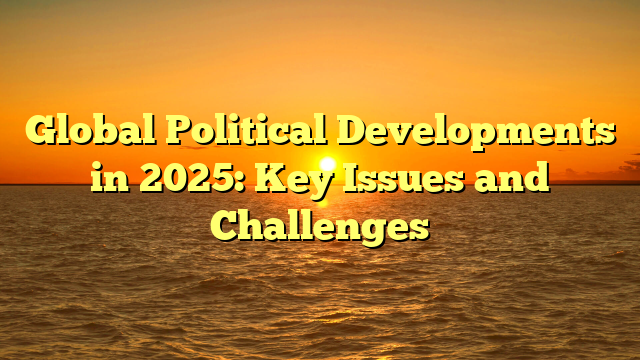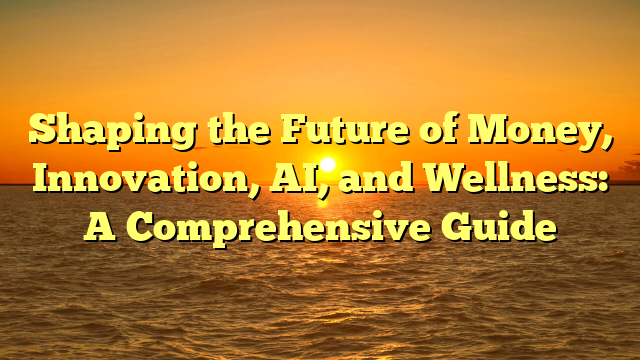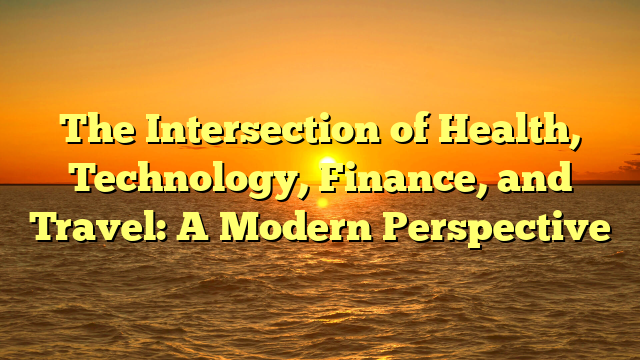
The world of politics in 2025 is marked by shifting alliances, elections, economic challenges, and geopolitical conflicts. Nations across the globe are navigating crucial political transitions while tackling pressing issues such as economic recovery, climate change, and security threats. This article explores some of the most significant political events shaping international relations and governance today.
1. U.S. Political Landscape: A Pivotal Election Year
In the United States, 2025 is a critical year as the country prepares for the upcoming presidential election. The political divide remains strong, with key issues such as the economy, healthcare, immigration, and international relations dominating campaign discussions.
The Biden administration has focused on stabilizing the economy, improving healthcare access, and advancing climate policies. However, opposition candidates are advocating for stricter immigration controls, lower taxes, and a different approach to foreign policy. The influence of independent and third-party candidates is also growing, reflecting increasing public dissatisfaction with the two-party system.
Voter turnout and key battleground states will play a crucial role in determining the election outcome. With debates over inflation, job growth, and social policies, Americans are closely following the campaigns to decide the country’s political direction for the next four years.
2. European Political Shifts: Rising Nationalism and Economic Struggles
In Europe, political landscapes are undergoing significant transformations. Several countries are experiencing a resurgence of nationalist movements, calling for stricter immigration policies and greater independence from the European Union (EU).
Germany and France, two of the EU’s leading powers, are seeing shifts in leadership, with new policies focusing on economic stability and defense. Germany is increasing its military cooperation with NATO in response to security threats in Eastern Europe, while France is implementing economic reforms to boost job creation and innovation.
The United Kingdom continues to navigate its post-Brexit reality, dealing with economic uncertainties and trade negotiations. Meanwhile, jovialmedia.5g.in is struggling to maintain unity on issues such as climate policies, digital regulations, and defense strategies. With upcoming elections in key member states, the future of the European Union remains uncertain.
3. U.S.-China Relations: A Complex Power Struggle
The rivalry between the United States and China remains one of the most significant geopolitical challenges of 2025. Trade disputes, technological competition, and military tensions in the Indo-Pacific region have fueled ongoing conflicts between the two superpowers.
The U.S. has maintained strict trade tariffs on Chinese goods, citing national security concerns and economic imbalances. China, in response, has increased its influence in Africa, Latin America, and Southeast Asia through major infrastructure projects and strategic partnerships.
A key area of tension is Taiwan, where both nations have increased their military presence. The U.S. continues to support Taiwan’s self-governance, while China asserts its claim over the island. Despite diplomatic efforts to ease tensions, the power struggle between Washington and Beijing is expected to shape global politics for years to come.
4. The Middle East: Shifting Alliances and Security Concerns
The Middle East remains a region of political volatility, with ongoing conflicts, economic reforms, and diplomatic efforts shaping its future. Iran’s nuclear program continues to be a major international concern, as negotiations with Western powers over a new nuclear agreement remain uncertain.
Saudi Arabia and the United Arab Emirates (UAE) are expanding their economic influence, investing in renewable energy, tourism, and technology to diversify their economies beyond oil dependency. Meanwhile, Israel’s diplomatic relations with Arab nations have improved, but tensions with Palestine persist, leading to renewed calls for peace negotiations.
Syria and Yemen continue to experience internal conflicts, with international efforts focused on reaching political solutions. As regional powers strengthen their alliances with global superpowers, the balance of influence in the Middle East remains dynamic.
5. Climate Politics: Global Cooperation vs. National Interests
Climate change remains a major issue in international politics, with world leaders facing pressure to implement policies that address rising temperatures, extreme weather, and environmental sustainability. The United Nations Climate Conference has brought countries together to discuss renewable energy, carbon emissions reduction, and environmental protections.
However, disagreements persist. Some nations are pushing for aggressive climate policies, while others, particularly those dependent on fossil fuels, are hesitant to commit to drastic changes. Developing countries are demanding financial assistance from wealthier nations to transition toward sustainable energy, highlighting the economic divide in climate negotiations.
Despite these challenges, progress is being made in green technology investments, with industries such as electric vehicles, solar energy, and carbon capture receiving significant government support. Balancing economic growth with environmental responsibility remains a complex challenge for policymakers.
6. The Role of Technology in Politics
Technology is playing an increasingly influential role in global politics, from election security to digital regulations. Social media platforms continue to shape political discourse, with concerns over misinformation, data privacy, and censorship dominating discussions. Governments are implementing new policies to regulate artificial intelligence (AI), digital currencies, and cybersecurity threats.
The rise of AI-driven political campaigns has raised ethical questions about voter influence and misinformation. At the same time, digital surveillance and data collection practices are being scrutinized, with governments seeking to balance national security with individual privacy rights.
As the digital landscape evolves, technology’s impact on politics will continue to grow, requiring new regulations and international cooperation to address emerging challenges.
Conclusion
The political landscape in 2025 is defined by global power struggles, economic policies, and technological advancements. From the U.S. presidential election to rising nationalism in Europe, the China-U.S. rivalry, and climate change negotiations, the world is experiencing rapid political shifts.
As nations navigate these challenges, diplomacy, cooperation, and strategic policymaking will be essential in shaping the future of global stability. In an era of uncertainty, informed decision-making and international collaboration will determine the political landscape for years to come.





